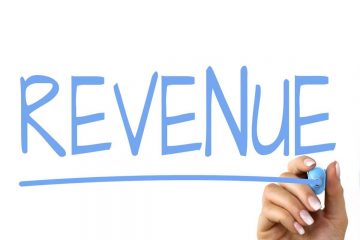Customer engagement has become the biggest focus in marketing strategies ever since brands realized loyal customers spend more money than new customers and it requires less investment to earn their loyalty. This same concept applies to the hospitality industry under the name guest engagement.
Essentially, guest engagement and customer engagement are the same things. The same principles apply and the same benefits are gained. So how are all these companies executing their guest engagement strategies? Let’s take a look below.
What is Guest Engagement Exactly?
Guest engagement encompasses the efforts made to create a deep relationship between the customer and brand. Rather than aiming to drive sudden purchases and increasing short-term sales, guest engagement focuses on increasing the lifetime value of each customer. As a result, marketing activities involved in guest engagement may include any interaction with the customer(guest) on any platform.
A successful guest engagement strategy involves the personification of a brand. If the personification is successful, guests enjoy interacting and keeping in touch with the brand, often through blogs and social media. Brands should interact with guests as though speaking to a friend, which includes checking-in on them before their arrival and following up after their stay.
Mobile; an Effective Guest Engagement Tool
Almost all of the world has gone mobile. There are 4.9 billion active mobile device users today. This means that 66% of the whole population is using mobile devices. And that’s not all: A survey over 2,800 hotels and their website data revealed more than 68% of hotel websites were accessed through a mobile device.
As you can see, it’s not enough to just have a website to engage with customers — unless you’re happy to reach only 32% of your total audience. If you want to reach 100% of your customers, you need to go fully mobile and develop an app that will expand your customer pool, improve guest satisfaction and engagement, and increase your overall revenue.
Two-Way Interaction is a Big Part of Guest Engagement
The Internet is a great way to create that interaction. However, engaging with customers only during their stay is not enough to stand out anymore. Try to expand your guest interaction into the pre-and-post-stay periods.
It’s also crucial to respond quickly. Almost all OTAs (online travel agencies) have a section for guest comments, with some OTAs even providing hotels with a chance to respond to comments. Use this opportunity wisely. There will inevitably be some negative and unfair comments about your property. Never argue with your customers and don’t make excuses for any mistakes. Let them know that you’re listening, you’re empathetic to their concerns, and you’ll try to resolve whatever made them unhappy. Even if you cannot win their business back, you can earn the trust of new customers who are reading these reviews. In fact, A survey conducted on 2,500 online travellers revealed that 57% of them read online hotel reviews before booking a room.
Use a Guest Engagement Platform
Mobile guest engagement platforms are useful tools to increase guest satisfaction. You can conduct surveys to understand customer feedback and concerns, take advantage of upselling and cross-selling opportunities, and create customer profiles to develop personalized offers and campaigns. A guest engagement platform also allows guests to directly book rooms without using OTAs.
In addition, guests can use the app to remotely explore the hotel’s facilities and services. They can even make reservations for the restaurant or spa, or choose to order room service.
The combination of all these features has an immediate impact on short-term revenue as it raises customer satisfaction, engagement and loyalty. In time, this loyalty will result in returning guests, which will increase hotel revenue in the long-term future. One final thing to remember is that making an existing customer return is more affordable than gaining a new customer. No matter what happens, make sure you follow this time-proven adage above all: The customer is always right.


